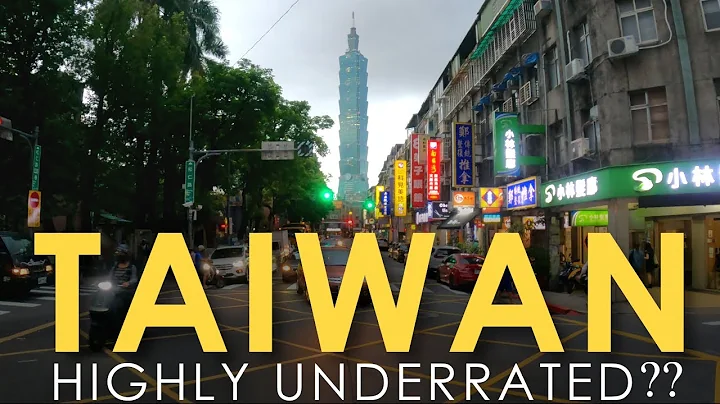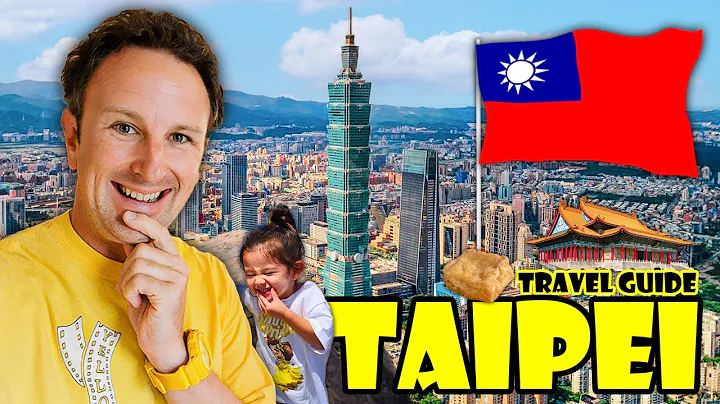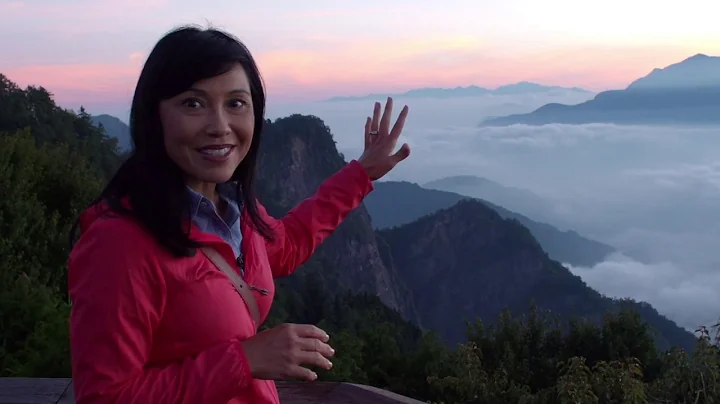The Ministry of Culture and Tourism of the Mainland issued an announcement on July 31, announcing that the Cross-Strait Tourism Exchange Association would suspend the pilot individual travel of mainland residents in 47 cities to Taiwan starting from August 1.
This "no warning" announcement dropped a shock bomb on the island of Taiwan. Many media have said that this is the first time that the mainland has put restrictions on mainland tourists visiting Taiwan "in black and white". What the reason is is anyone's guess.
In the announcement, the mainland only stated that it was "in view of the current cross-strait relations." According to the Taiwanese media, what has pushed Taiwan's tourism industry into trouble is undoubtedly the DPP authorities' practices of causing frequent troubles, coercing foreign countries' self-respect, and provoking cross-strait confrontation. On July 31, the Tsai administration criticized the other side for unilaterally breaking the treaty, while the right side said this move would not punish the Taiwan authorities. Taiwan's "China Times Electronic News" commented that the DPP authorities acted like a bystander and allowed people's livelihood to be in danger. It is not unreasonable for this "government" to lose the support of the people so much.
"The overlord cold wave is coming"
"It's over!" This was Nantou County Mayor Lin Mingqin's first reaction when he heard that the mainland had completely suspended free travel for mainland tourists to Taiwan. Sun Moon Lake, one of Taiwan's most well-known attractions, is located in this county. Taiwan's "United Daily News" reported that Sun Moon Lake has established sister lakes with the seven major lakes in mainland China. It is hoped that the provinces and cities where each lake is located will have at least 100,000 tourists visiting Nantou every year to promote the prosperity of the county. When the news came out, tourism operators in the Nantou area were shocked, lamenting that "this time I can't even sigh."

▲Sun Moon Lake is a must-see for many mainland tourists in Taiwan.
In June 2011, mainland China took the lead in allowing residents of Beijing, Shanghai, and Xiamen to travel freely to Taiwan. As of March 2015, a total of 47 cities in 5 batches were included in the pilot list for mainland residents to travel to Taiwan for individual travel. Hong Kong's South China Morning Post commented that this move was the result of the warming of cross-strait relations during Ma Ying-jeou's "reign" period. According to statistics from Taiwan's Immigration Department of the Ministry of Interior, since the implementation of the pilot program to the end of May this year, the number of independent mainland tourists visiting Taiwan has exceeded 7.235 million.
Individuals traveling to Taiwan need to hold a Taiwan Pass, Personal Travel Endorsement (G Visa) and Taiwan Entry Permit. The first two must be obtained by tourists from cities with free travel services at the entry-exit management department. The implementation of the new policy means that from August 1, mainland people traveling to Taiwan must apply for a group visa.
Taiwan's "Central News Agency" stated that previously reported measures to restrict mainland tourists in Taiwan were mainly focused on group tourists, and there was no explicit announcement. This time it is rare to openly target independent travellers. According to statistics, in the first half of this year, there were a total of 1.25 million mainland tourists, of which more than 50% were independent travelers. The South China Morning Post quoted Annie Ren, senior manager of Shanghai Jinjiang Tourism, as saying that mainland tourists are not very enthusiastic about traveling to Taiwan, and most tourists prefer to travel independently. If only group tours are allowed, then it will be difficult for tourists to travel to big cities such as Shanghai. The number of tourists from Taiwan may drop to zero.
According to the assessment of Taiwan’s travel industry, the number of mainland tourists from August this year to February next year may drop by 600,000 to 800,000. Based on the current average consumption level of mainland tourists in Taiwan, a five-day trip is about NT$30,000 (NT$1, NT$1 is equivalent to NT$4.5). It is expected that Taiwan's tourism industry will lose NT$18 billion to NT$24 billion in the second half of the year. Pan Guilan, chairman of the Taitung County Tourism Association, called this a "cold wave of the highest order". It is estimated that Taiwan's tourism industry, restaurants, department stores, etc. will be in misery after September, and it may be difficult to avoid a wave of store closures.
Tsai’s administration has taken the initiative
Taiwan’s “Immigration Service” recently announced in a high-profile manner that the number of mainland tourists visiting Taiwan in the first half of 2019 increased by 28% compared with the same period last year, and it “optimistically estimated” that the number of visitors to Taiwan for the whole year will be 3 million to 3.4 million. . "China Times Electronic News" quoted scholars' comments as saying that the cross-Strait political deadlock has been more than three years ago, and economic and trade exchanges and the number of mainland tourists visiting Taiwan are the only few cross-Strait "political achievements" that the DPP authorities can use to talk about. To mislead the Taiwanese people, even if they do not accept the "1992 Consensus", mainland tourists will still go.
The shock that mainland China's new policies have brought to the island can be seen from the statement of Taiwan's "Tourism Director" Zhou Yonghui. He told Taiwanese media: "We only knew a few hours before everyone else, and we need to settle down." On the 31st, the Taiwan authorities expressed their stance on this one after another. The "Ministry of the Interior" stated that it "sternly protested and condemned" and pointed out that mainland tourists were eager to travel to Taiwan. The Democratic Progressive Party doesn't know where the "confidence" comes from. It speculates that the mainland's move is because it is worried that the people will "experience the sweet fruits of freedom and democracy" and threatens that "Taiwan will open its arms to embrace tourists from more countries." The "Presidential Office" criticized the situation, saying that it was not happy to see the normal travel and exchanges between people on both sides of the Taiwan Strait "being interfered with by political factors."
In fact, it is the DPP authorities who continue to create obstacles to normal cross-strait exchanges and even obstruct them through political intimidation. On the 31st, the DPP's "Central Standing Committee" also held a special report meeting on "Coping with Red Infiltration". Taiwan's "Business Times" stated that Tsai Ing-wen's authorities have repeatedly issued "China-phobic" remarks, and the suspension of free travel should be a decision made by Beijing that is extremely dissatisfied with it. Some scholars analyzed the Taiwanese media and said that the current Democratic Progressive Party government frequently provokes cross-strait confrontation. If the words and deeds of free-traveling mainland tourists in Taiwan are consumed and exaggerated, they may even be manipulated into "mainland infiltration" or interference in elections. The mainland naturally needs Be on guard. Moreover, as the election becomes more intense, Taiwanese society may become more confrontational, and independent mainland tourists may also face personal safety concerns.
"China Times Electronic News" commented that the core of the mainland's initiative is to remind the Tsai administration to face up to the importance of the peaceful development of cross-strait relations. However, the DPP authorities also happily believed that they had "picked up a gun" and used confrontational and irritating language to accuse the mainland. The "Executive Yuan" declares that this move will not punish the Taiwan authorities, but only the people. The appearance of having nothing to do with it not only chills the people, but also makes people suspect that this "government" does not seem to know that it is the biggest problem in the cross-strait deadlock. source.
Is it possible that mainland China will take action?
In response to the mainland's measures, the Kuomintang said on the 31st that it deeply regretted the regression of cross-strait relations and the "stoppage" of people-to-people exchanges. The statement said that in recent years, cross-strait relations have stagnated or even regressed significantly. Not only have cross-strait flights decreased, but the number of mainland students and tourists visiting Taiwan has also dropped significantly, and cross-strait exchanges have obviously been seriously affected. During last year's "nine-in-one elections", the people of Taiwan expressed their firm will to "support the peaceful and stable development of cross-Strait relations" and "oppose ideological obstruction of exchanges" with their votes.
Kuomintang "presidential" candidate and Kaohsiung Mayor Han Guoyu expressed "high concern" and emphasized that he is very aware of the importance of mainland tourists in driving Taiwan's tourism industry. He expressed the hope that the mainland would understand that "the people of Taiwan are not equal to the Democratic Progressive Party." He also called on the DPP authorities to be cautious and should not frequently put a "red hat" on normal cross-strait exchanges. This is in line with the wishes of most kind-hearted Taiwanese people. expect.
"Blue Committee" Li Yanxiu said on the 31st that the mainland's strong tourism tightening policy this time is a big warning sign for the Tsai administration's cross-strait policy. The Democratic Progressive Party has previously criticized mainland tourists for not having the spending power to travel to Taiwan and for causing a load on the environment. In contrast, in the past three years, the Tsai administration has pushed hard for the "New Southbound" policy, but it has evolved into a bunch of subsidy programs.
According to the "United Daily News", the mainland's move is not only a policy but also a trend. It believes that "the mainland may take some actions in the next six months." The newspaper said that on the one hand, on the eve of the "August 1st" Army Day, the mainland's military declared its determination to combat "Taiwan independence" and on the other hand, it announced the suspension of individual travel to Taiwan. It is expected that the mainland will maintain strong pressure before Taiwan's "election" and will continue to take action against Taiwan in the future. In addition to the tourism card, the mainland also has trade cards, financial cards, and economic cards to play, as well as using its powerful comprehensive national strength to put pressure on the Tsai administration internationally.
Our special correspondent in Taipei Cui Mingxuan ●Our reporter Zhao Juehui ●Chen Xin
(Source: Global Network)





















